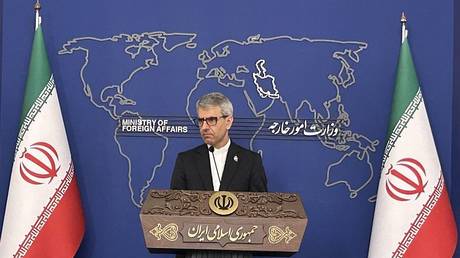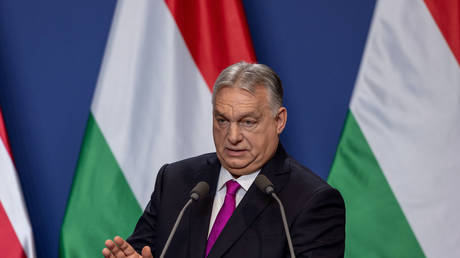
A Pakistani court has reportedly dropped its life prison sentence against a man because he agreed to wed the woman he assaulted
A convicted rapist in Pakistan has reportedly gotten out of a prison sentence by agreeing to marry the 36-year-old deaf woman whom he assaulted and impregnated in 2020.
The Peshawar High Court on Monday rescinded its life prison sentence against Daulat Khan, 23, after he wed the woman whom he was convicted of raping, CNN reported on Thursday, citing the man’s lawyer. The wedding followed an out-of-court settlement that was made through a jirga, a council of local leaders that make decisions based on Islamic law.
Khan also had been ordered to pay a fine of 100,000 rupees ($1,200) over the sexual assault, which occurred in northern Pakistan’s Swat district. The victim, who is reportedly both deaf and mute, subsequently gave birth to a child as a result of the rape.
The Human Rights Commission of Pakistan (HRCP) condemned the court’s decision to release Khan, based on a “compromise” marriage, as a “miscarriage of justice.” “Rape is a non-compoundable offense that cannot be resolved through any such feeble compromise. The verdict is therefore a gross violation of law and a miscarriage of justice.” The commission urged prosecutors to appeal the ruling and uphold the government’s commitment to women’s rights.
An average of 11 rapes are reported across Pakistan each day, according to the HRCP, and many cases go unreported. Jirgas have been accused of perpetuating a culture of victim-shaming, especially when it comes to rape. A jirga in central Pakistan infamously ordered in 2017 that a 16-year-old girl be raped as punishment for her brother’s alleged sexual assault of another girl.
Swat gained infamy in 2012, when a Pakistani Taliban gunman shot a girl in the head for defying the group’s orders against going to school. Ten men were arrested and sentenced to 25 years in prison for their roles in the shooting. The girl, Malala Yousafzai, survived and became a prominent education activist. She was awarded the Sakharov Prize in 2013 and a Nobel Peace Prize in 2014.
Pakistan’s government has responded to public outcry over sexual assaults by toughening the nation’s rape law and setting up special courts to try cases quickly. The country’s Parliament passed a law last year giving judges the option of sentencing rapists to be chemically castrated. That provision was later dropped amid opposition from experts in Islamic law.




